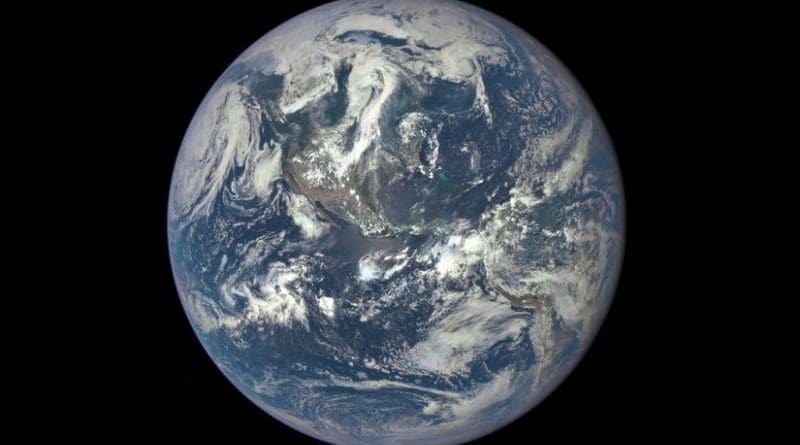Cultural Diplomacy As Source Of International Unity – OpEd
By Tariq Khan*
From the outset human beings have struggled to adopt a diversified environment deeply related to their lifestyle. Culture is the cumulative knowledge about the various aspects of life of a group of people or community. Cultural diplomacy, in others words, is a deep study of humankind’s social behavior and intellectual achievements.
Culture is the social behavior of a society and diplomacy is the action and skill to manage the social contacts in very sophisticated manners. As such, culture and diplomacy are both interrelated.
We can understand cultural diplomacy through its eight developmental factors that are closely interconnected with human social, cultural and national interests. Cultural diffusion, relativism, appropriation, competence, diversity, identity, imperialism and capital are the eight factors that determine the cultural diplomacy of a particular community or nation.
Such factors clearly describe the cultural spread, adoption, use, beliefs, behavior of one person to another person’s culture or activities from group to another. So the integration of world cultures through different ethnicities, religions and nationalities or principle of regarding the beliefs, values, behaviors, attitudes, policies and practices of a culture from the viewpoint of that culture itself has increased with highly developed communication, transportation, technology, and industry that determines the direction of both economic and social progress of that particular nation.
Cultural diplomacy is the practice of spreading the culture of that nation to another through communication skills and activities. Cultural diplomacy decides the specific ways of cooperation among nations. It helps a country to develop cordial and fruitful relationships with other countries. It promotes peace oriented ideas and new thoughts while bringing together the people from different cultures and generations and civilization backgrounds.
Culture and its factors are the tools for innovation in political actions, strategy, planning, marketing and promoting contacts among nations and continents. It provides a platform for every nation to share its culture, values, beliefs, behavior and civilization with other nations for better development and progress. It is the symbol of peace and harmony among nations.
The most important thing is to remember that all human beings are part of the big family of Adam, which demonstrate and share common features of culture as humanity.
If we examine the historical background of cultural diplomacy since World War II there have been many incidents that represent the successful practices of diplomacy and working as a catalyst to create harmony and peace among nations, as well as in international relations through different aspects.
We can say cultural diplomacy acts as contractor of global human rights. It talks about the rights of humanity. Cultural diplomacy is an effective instrument that plays a central role in developing relations among states in contemporary international relations. It is a channel to enhance the exchange of ideas, culture among nations in difficult times for mutual understanding.
Culture plays a vital role in international relations and diplomacy. In this interdependent world cultural diplomacy plays a role in the unity of people and nations.
The biggest practice of cultural diplomacy was the United Nations, which was established in 1945 after World War II by the unity of 51 countries to maintain international peace and security, as well as to develop amiable relations among nations and to promote social progress and human rights. The United Nations represents an evolution in the history of nations by building various specific agencies to fulfill international needs. With time, those different international organizations have adopted cultural diplomacy to unite the nations on various aspects and needs of life. As such, United Nations agencies are playing a specific role in their respective objectives and mission.
All these international and inter-governmental organizations are based on cultural diplomacy uniting the nations economically, financially, socially, educationally and politically to build unity, peace and harmony globally. The basic principles of cultural diplomacy such as respect for cultural diversity, worldwide intercultural dialogue, justice, equality and interdependence, the safety of international human rights, global peace and stability are the motto of these international organizations and every diplomatic mission of a nation to other nations that is based on international unity.
By nature, a person cannot live alone in this world. In a community, people are interdependent with each other. Communities make a nation that has its own identity, culture, religion, language and values, but is interdependent with other nations for development in politics, trade, commerce, communication, education, health, security, peace, harmony and stability. Still, there is a need for the international cooperation to make the progress of every nation in every field. In this modern world nations are interconnected and united to fulfill their national interests.
Culture is the only source of attraction for any nation. Cultural diplomacy creates interest and unity in people of that nation and other nations. It is a source of inspiration to know about the different cultures of world. Culture can provide the people a platform to sit together and discuss their shared values and common grounds for mutual understanding.
Unity in diversity is an integrative approach to intercultural relations. Social and intercultural interactions among communities and nations are necessary for international unity. Unity has become a major challenge among nations, which is only inevitable through cultural diplomacy. Culture of any nation promotes love, peace and harmony among people.
Cultural diplomacy is a systematic approach to resolve the conflicting political and economic interests of any nation. Multicultural dialogue and cultural diversity has become the need of time. Dialogue among cultures, civilizations, traditions, and inter-faith organizations can promotes unity.
In short, unity is absolutely essential. Every government and nation must be united towards common needs. Cultural diplomacy uses the formula of one people and one world. When all countries unite and work together then there will be a significant improvement in the state of the world. A wise leadership can build unity among nations through cultural diplomacy, which is the surety to end the majority of the world’s problems.
*Tariq Khan, Chairman, PINPOINT institute,research based think tank, Islamabad

